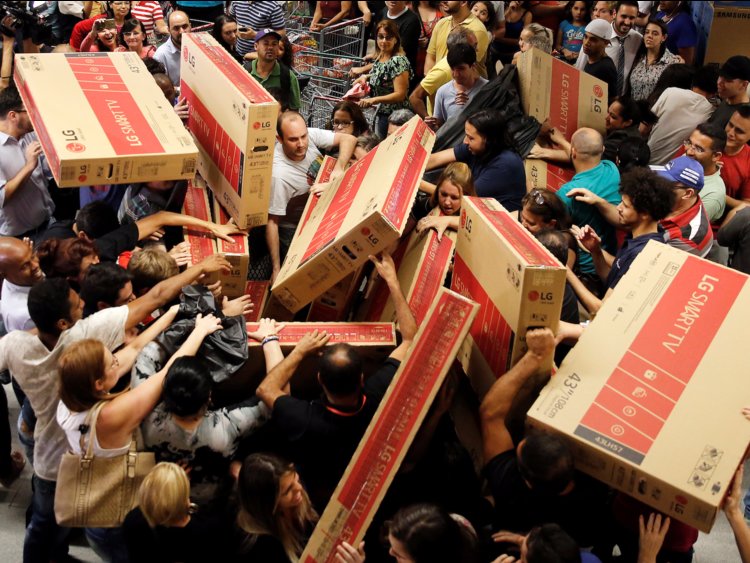The headlines this year are the same as they have always been: “Weird Black Friday deals you didn’t know you wanted”, “You don’t need these deals, but you’re going to buy them anyway”, “Black Friday is a great time for impulse buys”. In the UK alone, sales are 1500% greater than on any other Friday of the year and while estimates vary, according to Black Friday Global, the average Brit spent £300 on last Friday’s sales. Whilst this figure also results in an estimated save of £489 per shopper, the money spent reaches a new record year on year and the disturbing damage done by Black Friday sales is immeasurable.
A ridiculous number of people spend Black Friday deciding which laptop, TV or hair straighteners to upgrade to. They are brainwashed by the price slashes and consequently forget that their previous appliances and gadgets won’t dissolve back into the environment but rather sit in a landfill for hundreds of years, leaking toxic chemicals into the air, soil and water sources as they do so.
And the list is endless. Scrolling through this year’s best deals, I found some shockers. Unnecessary is a kind way to describe our Black Friday spending habits; really they are just embarrassing and sad. Tragically, the most popular items bought over Thanksgiving weekend are gadgets and clothes, two of the most polluting and equally unnecessary items we could spend our money on. Last week, Apple airpods, potentially the most futile product Apple is yet to shove down our throats, were £60 off on Amazon. Amazon sales have previously accounted for almost 40% of online Black Friday sales and there’s no reason why this year wasn’t any different. All Black Friday really signifies is the world coming together and saying “good idea let’s spend this month’s wages on gadgets we don’t need from Amazon, another corporate giant that doesn’t pay its taxes”.
The BBC documentary, Stacey Dooley Investigates Fashion’s Dirty Secrets, shines a light on the ecosystems, communities, and livelihoods destroyed by the industrial production of cotton and our bottomless appetite for cheap clothing. For anyone who hasn’t been watched it, please do so. And whales, the earth’s most majestic creatures, have been found dead in the ocean, their bodies full of plastic cups, flip flops and food wrappers. Thankfully, this is getting some of the coverage it deserves, but what is the response? “That’s so sad,” we say, whilst sipping from our plastic bottles and unwrapping our clingfilm lunches.
We shouldn’t be worried about the abundance of plastic found in oceans, we should be terrified. Over the past few years, microplastics have been found in a shocking number of food products including sugar, shellfish, table salt, and most drinks. A study on the River Tame in Manchester showed that this water source has almost double the highest number of plastic particles ever recorded worldwide. And of course, this is affecting our bodies. A study in the US confirmed that 95% of participants’ urine contained carcinogenic chemicals as a result of the plastic we are ingesting. Scientists and doctors have agreed unanimously that plastic is now in what we eat, drink and breath and its threat to human health will not stop growing. It may be too late to fully undo the damage we have done but we can at least try and stop it from worsening. The first way we can do this is by stopping the harmful and selfishly ignorant way we buy things that we have absolutely no need, or sometimes even desire for.
Annabel White

